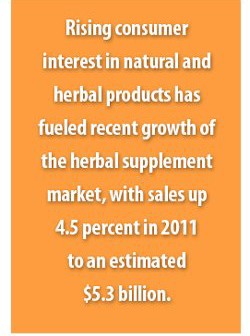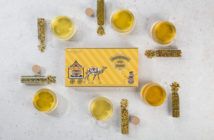Are you confused about what herbal medicine is? Do you wonder if you might want to consider taking some as an alternative to pharmaceuticals?
Many plants can be used for medicinal purposes. The World Health Organization estimated in 1985 that nearly 80% of people around the globe relied on herbs to meet their primary health care needs. Dr. H. Wagner estimated in a 1988 interview in HerbalGram: The Journal of the American Botanical Council, that 30-40% of all physicians in Germany and France relied on herbal medicine as their primary medicines.
Before 1926, “King’s American Dispensatory,” considered the bible for physicians before publication of the contemporary “Physician’s Desk Reference” (PDR), contained only herbs to treat disease. Once companies began synthesizing the plants into drugs however, herbs gradually fell out of favor among physicians; the pharmaceutical industry was born. To make huge profits, natural substances needed to be synthesized and chemically altered to be patentable. Instead of complementing them, modern science was seen as a replacement for old, reliable folk remedies.
In his classic herbal medicine text “The Healing Power of Herbs,” naturopath Michael T. Murray, N.D. concluded, “I think there are two primary differences between herbs and synthetic pharmaceutical drugs. 1) Herbs are traditionally less toxic and therefore have fewer side effects and 2) herbs correct the underlying cause of a health problem while synthetic drugs are designed to reduce symptoms.”
Download our free Wellness & Tea 101 E-Book
The Herbal Tea Tradition
Herbal teas in the United States became popularized by Mo Siegel who in 1969 co-founded Celestial Seasonings, a company known for its popular Red Zinger and Sleepy Time teas. Five years later, well-respected master herbalist Rosemary Gladstar founded Traditional Medicinals with Drake Sadler with the intention of providing herbal teas for “self-care.” Credited with creating the wellness tea category, the company continues to be a major player in the segment. Says CEO Blair Kellison, “Now is a great time for Traditional Medicinals which has been a leader in wellness teas for nearly four decades.”
Portland, Ore.-based Townshend Tea Company is bringing organic medicinal herbs into their tea apothecary in a very substantial way. “It was a natural evolution for us,” says Jack Gano, manager of Townshend. “It started with employees who were experimenting with herbal teas and quickly spread to customers. I would estimate about 25% of our sales are from herbals and it’s growing.”
I believe that herbal teas are here to stay. For maximum benefit drink organic selections whenever possible. Remember to steep in boiling water in a covered cup or pot for at least 5-10 minutes to derive the optimal benefits from the herbs. With today’s delicious blends, there’s no need to gulp it down quickly like medicine. Relax, restore, revitalize. Healing never tasted so good.





